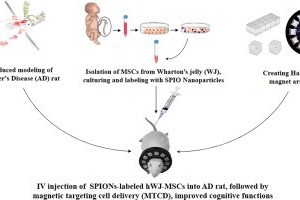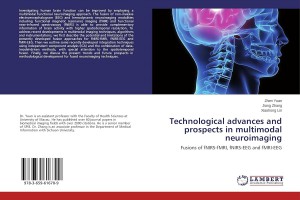Locked-In ALS Patients Answer Yes or No Questions with Wearable fNIRS Device
fNIRS technology is allowing ALS patients who are ‘locked in’ to communicate, a new study reports
Functional near infrared spectroscopic (fNIRS) imaging (pronounced f-nears) has led to a breakthrough in communication with ALS patients who are “Locked-In,” meaning they are in advanced stages of the disease where the brain is conscious and functioning, but they are unable to move any muscles, including the eyes.
Using a wearable system developed by SUNY Downstate Medical Center researcher Dr. Randall Barbour, a team of investigators led by Professor Niels Birbaumer at the Wyss Center for Bio and Neuroengineering in Switzerland and University of Tübingen in Germany were able to measure the brain’s hemodynamic response to a series of ‘yes’ or ‘no’ questions, thus allowing these patients to communicate.
The results of the trial were published recently in PLOS Biology.
“For many years the scientific community has attempted communication with these subjects using different neurosensing technologies,” says Dr. Barbour. “Previous efforts using fMRI and EEG had their limitations, so we built our device to detect changes using near infrared spectroscopy.”
Non-invasive and wearable, the fNIRS system may eventually be incorporated into a home environment, allowing family, friends, and caregivers to communicate with the patient for the first time since the onset of this severe stage ALS.
“The portability of this device is critical for the many weeks of training needed to help subjects develop their new form of communication,” Dr. Barbour added. “The device measures the brain’s hemodynamic response, using fNIRS, and the readings are then processed using specialized algorithms to recognize when a subject is responding yes or no.”
The technology was developed by Dr. Barbour and licensed to NIRx Medical Technologies, through the SUNY Downstate technology transfer program.
Together with Professor Birbaumer, NIRx and other partners have been awarded a 3-year grant to further advance fNIRS sensing capabilities working toward the development of a version for in-home use.ay have expertise in metacognitive therapy,” says Hagen.





Related Posts